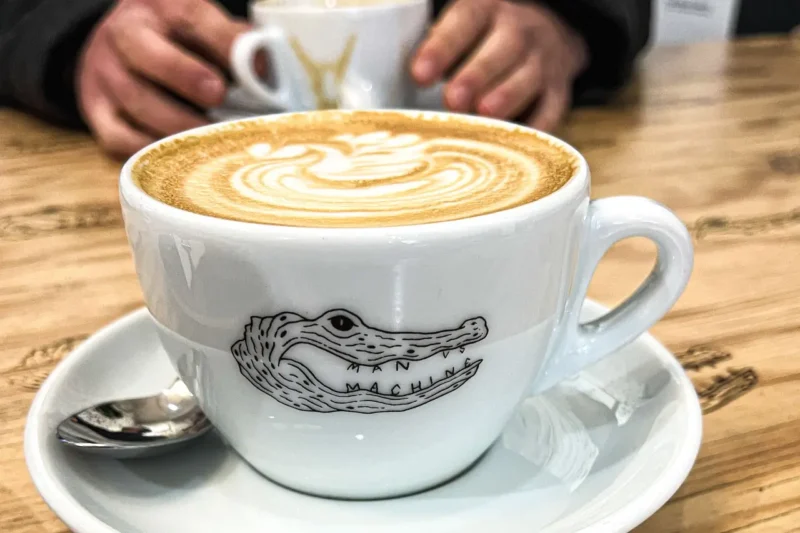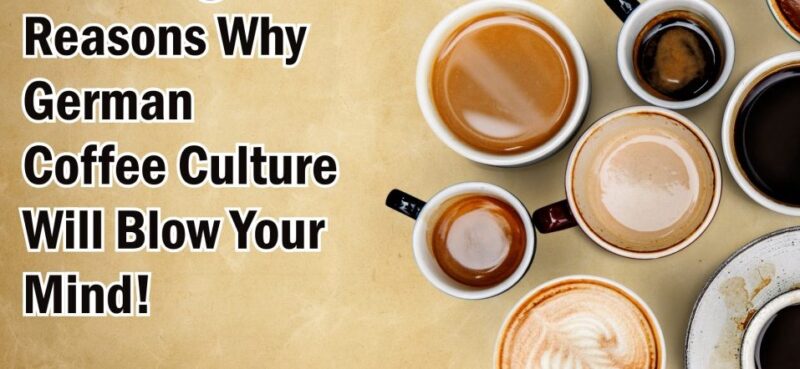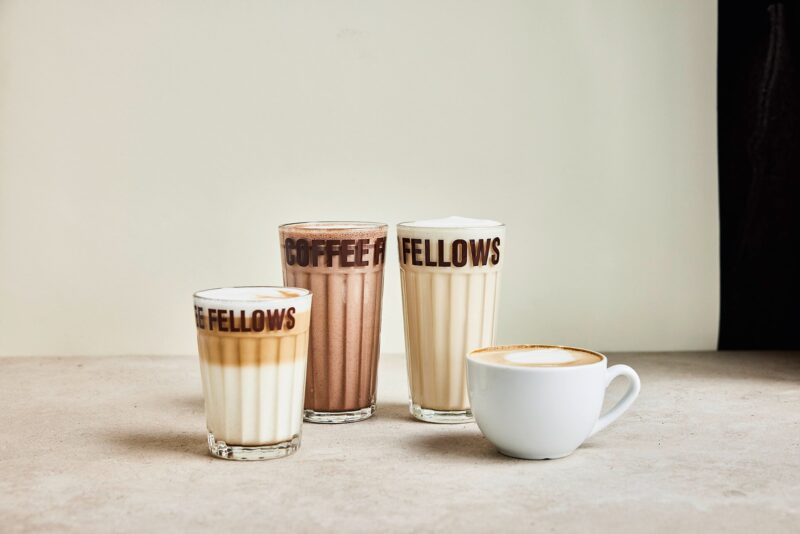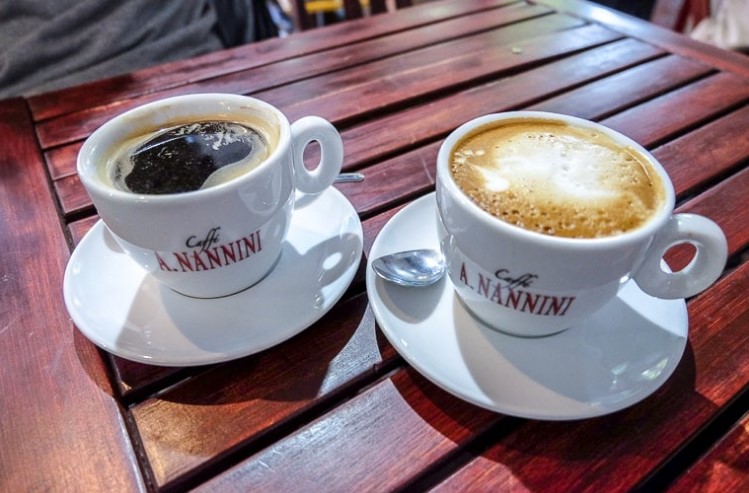Munich stands as a city that blends history, style, and genuine appreciation for quality. Its coffee culture forms a crucial part of that identity. The cafés across its streets carry not only the aroma of freshly brewed espresso but also the elegance of calm social life. Each cup reflects tradition and craft that define how the city approaches daily ritual and relaxation.
If you are traveling alone, Louisa Escort offers a refined option for company during a café visit or an afternoon walk. The experience of exploring Munich’s coffee scene becomes richer with pleasant conversation and companionship that complements the city’s calm rhythm.
Coffeehouses in Munich differ from those in other European capitals through their focus on atmosphere and authenticity. In Vienna, grandeur dominates. In Paris, elegance and fashion shape the setting. Munich, however, delivers warmth, precision, and quiet excellence without pretension.
Roots of Munich’s Coffee Tradition

Coffee reached Bavaria through trade routes in the seventeenth century. The first coffeehouses in Munich appeared shortly after royal courts in Vienna and Berlin adopted the drink. By the nineteenth century, cafés had become social centers for writers, musicians, and thinkers who shaped the city’s cultural life.
Each generation refined the experience. Unlike the fast pace of modern café chains, Munich preserved an emphasis on conversation, time, and presentation. Locals value the balance between flavor and setting. Cups arrive with careful attention to detail, served on small trays with water and often a piece of chocolate or pastry.
The city’s older cafés, such as Café Frischhut or Café Luitpold, maintain interiors that echo past centuries. High ceilings, marble counters, and classical décor create an environment that encourages slow appreciation rather than haste. That sense of rhythm distinguishes Munich’s approach from other European cities where coffee sometimes turns into a quick necessity.
Café Styles Across the City
Munich’s cafés fall into clear categories. Each one reflects a different aspect of the city’s personality.
Historic Cafés
View this post on Instagram
Long-established coffeehouses near Odeonsplatz and Maximilianstrasse evoke the old-world charm of the nineteenth century. Café Luitpold remains the most iconic. Guests enjoy coffee surrounded by art exhibits and pastry displays that honor traditional recipes. The place carries echoes of intellectual circles and conversations that once defined Munich’s literary community.
Modern Specialty Cafés
Newer cafés blend craftsmanship with minimalism. Owners roast their beans locally, experiment with brewing techniques, and serve coffee sourced directly from small producers. Man Versus Machine and Standl 20 set the standard for that generation. Both deliver precise flavor control and calm interiors suited for thoughtful pauses between city walks or meetings.
Neighborhood Cafés
Beyond the city center, each neighborhood presents its own tone. In Schwabing, artistic cafés attract students and musicians. In Glockenbachviertel, small coffee bars focus on intimacy and modern aesthetics. Every district contributes to the whole, showing how Munich’s café culture thrives across all social layers rather than in a single quarter.
What Sets Munich Apart
The strength of Munich’s coffee culture lies in its balance. The city merges the quality of Italian espresso with the composure of German order. Baristas emphasize consistency and calm service rather than performance or attitude. Cups arrive perfect in temperature, taste, and presentation.
Munich also promotes a connection between café and community. Locals see their favorite spot as an extension of home. Regulars often sit at the same tables, greeted by name. Visitors who join in find the city’s hospitality expressed not through words but through quiet courtesy and impeccable detail.
Outdoor seating during spring and autumn adds another layer. Cafés line the streets and squares, letting patrons observe the passing crowd under soft sunlight. That combination of precision, friendliness, and aesthetic pleasure separates Munich from busier capitals where cafés often cater to movement rather than presence.
How Coffee Reflects the Bavarian Mindset

Bavarians view life through rhythm and structure. Meals, gatherings, and work all follow a clear pace. Coffee fits naturally into that framework as a pause between commitments. Instead of using caffeine as fuel, many use coffee as an anchor that resets the day.
The act of drinking coffee in Munich carries meaning beyond the cup. Each pause reinforces balance between focus and leisure. A short conversation, a quiet read, or a simple observation of city life gives purpose to each visit. That collective discipline forms part of why the culture sustains itself so strongly in the modern age.
Local Roasters and Craftsmanship
Behind every good cup stands careful sourcing and roasting. Munich’s small roasters focus on transparency and ethics. Beans come directly from farmers across Central and South America, Africa, and Asia. Each roast profile highlights balance between sweetness, acidity, and texture.
Suppliers such as Mahlefitz and JB Kaffee represent the craftsmanship that defines local production. They avoid industrial processes and emphasize freshness. Many cafés purchase directly from those roasters, ensuring that each cup reflects the same level of attention applied to preparation.
The result is harmony between sustainability and tradition. Munich’s coffee scene shows that modern awareness and classic quality can coexist. The community’s respect for craft extends beyond flavor to values that define the city’s identity.
Pairing Coffee With Pastry
Cakes and pastries form an inseparable part of the coffee experience in Munich. Konditoreien, or pastry shops, produce a range of desserts that complement strong espresso and creamy cappuccino.
Apple strudel, plum tart, and Prinzregententorte remain timeless. Each carries local character tied to seasonal ingredients. In every café, pastry display counters represent artistry equal to the brewing process itself. Patrons enjoy flavor and presentation combined in perfect proportion.
Sitting with coffee and pastry near Viktualienmarkt or Gärtnerplatz provides one of the most genuine cultural experiences in Bavaria. Locals treat that simple combination as a reward, not as indulgence.
The Social Element
Cafés in Munich act as neutral spaces that welcome all backgrounds. Business meetings, casual encounters, artistic discussions, and solitary reflections share the same environment. The layout usually encourages comfort and interaction without forcing it.
Music plays softly, service remains unobtrusive, and lighting emphasizes natural tones. People stay for hours without pressure to leave. That approach builds community through respect rather than rules. It makes strangers feel part of the same rhythm.
For those seeking companionship, Louisa Escort enhances the experience through elegance and discretion. Sharing a conversation over cappuccino in Café Luitpold or Standl 20 can turn an ordinary afternoon into a refined memory. The presence of good company aligns perfectly with Munich’s balance of culture and comfort.
Coffee and Architecture
Munich’s café culture intertwines with its architecture. Many establishments occupy restored buildings from the nineteenth and early twentieth centuries. Arched windows, intricate moldings, and polished wood create the right backdrop for reflection.
Some modern coffee bars integrate minimalist design into industrial spaces. Exposed brick, metal details, and soft lighting contrast with the ornate charm of traditional spots. That mixture of old and new reflects Munich’s identity as a city rooted in history yet open to contemporary taste.
Each cup of coffee becomes a dialogue between time periods. Patrons sense connection between tradition and innovation in every detail—from furniture choice to ceramic design.
Comparing Munich With Other European Coffee Capitals

Vienna’s cafés express imperial grandeur. Prague emphasizes nostalgia. Paris offers elegance mixed with fashion. Rome focuses on intensity and speed. Munich separates itself by quiet precision and emotional balance.
Its cafés welcome reflection without detachment. Service remains attentive but never invasive. Music supports conversation rather than competing with it. Every action feels measured and natural. That attitude reflects a broader cultural quality that defines Bavarian refinement.
The absence of pretense forms the foundation of Munich’s distinct identity. Locals view coffee as ritual, not performance. The experience centers on calm appreciation rather than exhibition.
Final Reflection
Munich’s coffee culture stands apart through calm elegance, precise service, and genuine respect for tradition. Each café embodies craftsmanship and continuity. The city transforms coffee from a drink into a complete sensory experience that unites taste, design, and human connection.

